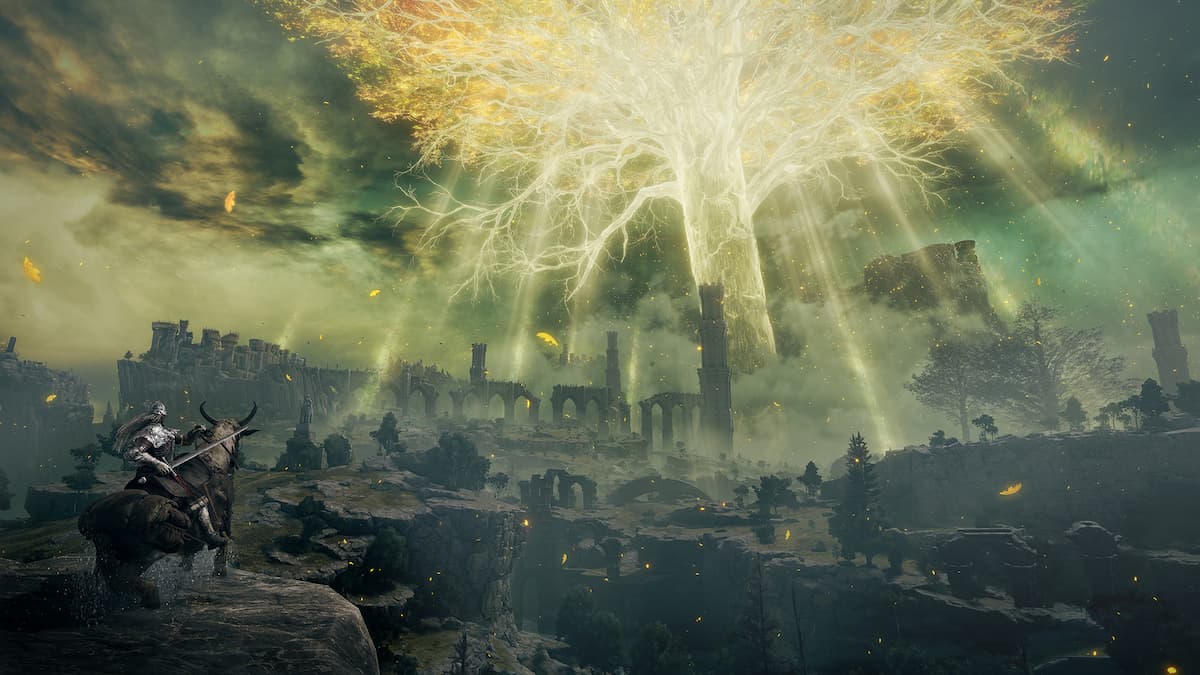George R.R. Martin Responds to Overwhelmingly Positive Reviews of ‘Elden Ring’

Elden Ring is a huge success and has taken over the video game world (and this website). This acclaim has not gone unnoticed by collaborator George R.R. Martin, who wrote about it for his “Not a Blog” site. “Music to the ears,” Martin says in the post, as he links to a few of the reviews from publications like NPR, Esquire, and Gamespot. The A Song of Ice and Fire author says that he was brought on to do the world-building:
“Of course, almost all the credit should go to Hidetaka Miyazaki and his astonishing team of games designers who have been laboring on this game for half a decade or more, determined to create the best videogame ever. I am honored to have met them and worked with them, and to have have played a part, however small, in creating this fantastic world and making ELDEN RING the landmark megahit that it is.”
The book nerd in me suddenly realizes that Martin has been working on this game for years and not on the final books in the ASOIAF series, but I’m not bitter. In all seriousness, I love the idea of collaborations between authors and game designers in this way. Video games can be like living novels, where you as the protagonist make decisions that affect your journey, especially in open world situations like ‘Elden Ring’ where there is so much possibility.
According to an interview with the New Yorker, game director Hidetaka Miyazaki shared that he placed some restrictions on what Martin could do.
Miyazaki placed some key restraints on Martin’s contributions. Namely, Martin was to write the game’s backstory, not its actual script. Elden Ring takes place in a world known as the Lands Between. Martin provided snatches of text about its setting, its characters, and its mythology, which includes the destruction of the titular ring and the dispersal of its shards, known as the Great Runes. Miyazaki could then explore the repercussions of that history in the story that the player experiences directly.
“In our games, the story must always serve the player experience,” Miyazaki explained. “If [Martin] had written the game’s story, I would have worried that we might have to drift from that. I wanted him to be able to write freely and not to feel restrained by some obscure mechanic that might have to change in development.”
He continued, “That power of imagination is important to me. Offering room for user interpretation creates a sense of communication with the audience—and, of course, communication between users in the community. This is something that I enjoy seeing unfold with our games, and that has continued to influence my work.”
Have fun getting those runes, leveling up, and running away from bosses too scary for you.
(via GRRM’s NotaBlog, image: Bandai Namco)
Have a tip we should know? tips@themarysue.com